The Eye Institute has ophthalmologists, optometrists and opticians. We offer comprehensive Eye Care!
Ophthalmologist(MD) Total Eye Care
These doctors went to medical school. After that, they had a 1-year internship and a residency of 3 or more years.
They offer complete eye care services:
Medical eye care — for conditions like glaucoma, iritis, and chemical burns
Surgical eye care — for trauma, crossed eyes, cataracts, glaucoma, and other problems
Diagnosis and treatment of eye conditions related to other diseases, like diabetes or arthritis
Plastic surgery — to raise droopy eyelids or smooth out wrinkles
Treatments for – Retina, Glaucoma, Cornea, Cataracts, iLASIK, PRK, Pediatrics, Oculoplastics, Eye Muscles, Macular Degeneration, Kerataconus,
Meet our Ophthalmologists
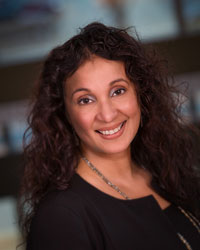 Prema Abraham, MD
Prema Abraham, MDDr. Abraham received her Bachelor of Arts degree in Chemistry from Stephens College and her medical degree from the University of Arkansas College of Medicine. After receiving her medical degree, she did an internship and residency at the University of Utah School of Medicine and then followed this with a Vitreoretinal Fellowship at Wills Eye Hospital. Dr. Abraham joined the Black Hills Regional Eye Institute in 1995 and has been the acting Medical Director since 2001. Dr. Abraham is a leading physician in retina and provides services that normally would only be found in major metropolitan areas. The Retina Center at the Eye Institute has state-of-the-art equipment including the Spectral Domain OCT, high resolution fundus photography and angiography. Dr. Abraham also participates in numerous clinical research trials related to diabetic retinopathy, macular degeneration, and vein occlusions.
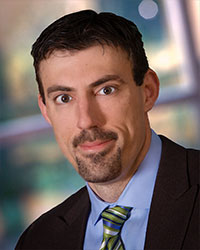 Stephen Khachikian, MD
Stephen Khachikian, MDDr. Khachikian obtained his Bachelor of Science degree and graduated with honors from Siena College in Upstate New York, before pursuing medical school at Albany Medical College. Dr. Khachikian continued his medical career in Albany completing his Ophthalmology Residency and Cornea, External Disease and Refractive Surgery Fellowship. Dr. Khachikian has performed extensive clinical research in the areas of keratoconus, corneal topography and endothelial keratoplasty. Dr. Khachikian specializes in all forms of corneal transplantation and regularly performs refractive and cataract surgery including the use of toric and multifocal intraocular lenses. He also has an interest in repair of traumatic eye injuries and anterior segment repair.
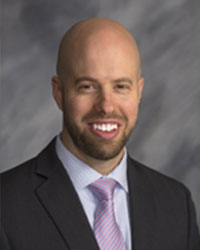 Adam Jorgensen, MD
Adam Jorgensen, MDDr. Jorgensen joins us from Salt Lake City, UT where he obtained his medical degree from University of Utah School of Medicine after receiving his B.A. BS in Biology and Minor in Chemistry. His Medicine Internship was at University of Utah Medical Center and his Ophthalmology Residency at John A. Moran Eye Center. He is a fellowship trained glaucoma surgeon having completed his fellowship at John A. Moran Eye Center.
Optometrist (OD) Vision Care and Eye Care Services
They’re medical professionals, but they didn’t go to medical school. After college, they spent 4 years in a professional program and got a doctor of optometry degree. Some optometrists get additional clinical training after optometry school.
They focus on regular vision care and prescribe eyeglasses and contacts.
Perform eye exams
Treat conditions like nearsightedness, farsightedness, and astigmatism
Prescribe and fit eyeglasses and contact lenses
Provide low-vision aids and vision therapy
Diagnose eye conditions like glaucoma, cataracts, macular degeneration, diabetic retinopathy, and conjunctivitis
Prescribe medications for certain eye conditions (in some states)
Help with pre- or post-operative care for people who need surgery
Meet our Optometrists
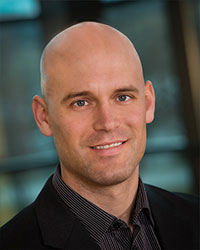 Scott Schirber, OD
Scott Schirber, ODDr. Schirber was born and raised in South Dakota and earned his Bachelor of Science degree from South Dakota School of Mines and Technology. He completed optometry school at Pacific University College of Optometry. After completing his education, Dr. Schirber moved to Minneapolis, where he worked at one of the busiest laser centers in the country. He returned to South Dakota and joined the Black Hills Regional Eye Institute in 2007 to become the Laser Vision Center Director. He has personally had LASIK surgery which serves him well as he educates and helps patients lessen their dependence on glasses and contacts at the Eye Institute. Dr. Schirber also enjoys specialty contact lens fittings for those with keratoconus, corneal transplants and severe dry eye.
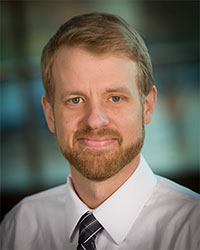 Ryan Scarborough, OD
Ryan Scarborough, ODDr. Ryan Scarborough returned home to South Dakota after practicing hospital based optometry with the Indian Health Service in Arizona. He grew up on a ranch in western South Dakota and received a Bachelor of Science degree in Chemistry from South Dakota State University. In between his undergraduate and professional degrees he served as an AmeriCorps VISTA in inner city Cleveland, Ohio. Dr. Scarborough received his optometric degree from The Ohio State University and furthered his education with an accredited residency in ocular disease and primary eye care from the Marshall B. Ketchum University. He volunteers his time with the board of directors for the Northern Plains Eye Foundation in addition to providing care at the Community Health Center of the Black Hills. Dr. Scarborough has obtained fellowship status in the American Academy of Optometry and maintains board certification with the American Board of Certified Medical Optometrists.
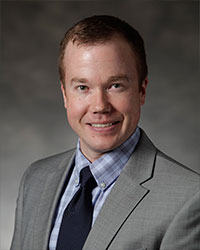 Jess Moser, OD
Jess Moser, ODDr. Moser earned his Bachelor of Science degree in Biology and graduated with honors from Black Hills State University. He went on to complete his doctorate of optometry from the Illinois College of Optometry in Chicago, Illinois where he received clinical and academic awards. He is a member of Beta Sigma Kappa Honor Society, the American Optometric Society, Volunteer Optometric Services for Humanity, and the South Dakota Optometric Society. Dr. Moser joined the Eye Institute in 2014 to provide primary eye care, ocular health exams, contact lens services, treatment and management of ocular diseases, and post-operative care.
Optician: Eyeglasses and Contact Lenses
Opticians aren’t eye doctors and can’t give eye exams. They get a 1- or 2-year degree, certificate, or diploma. They fill the prescription your eye doctor gives you. They also:
Check lens prescriptions
Provide, adjust, and repair glasses, frames, and contact lenses
Take facial measurements
Help decide which type of lenses and frames will work best
Order and check products, including contacts and eyeglass lenses
How to Choose an Eye Doctor

